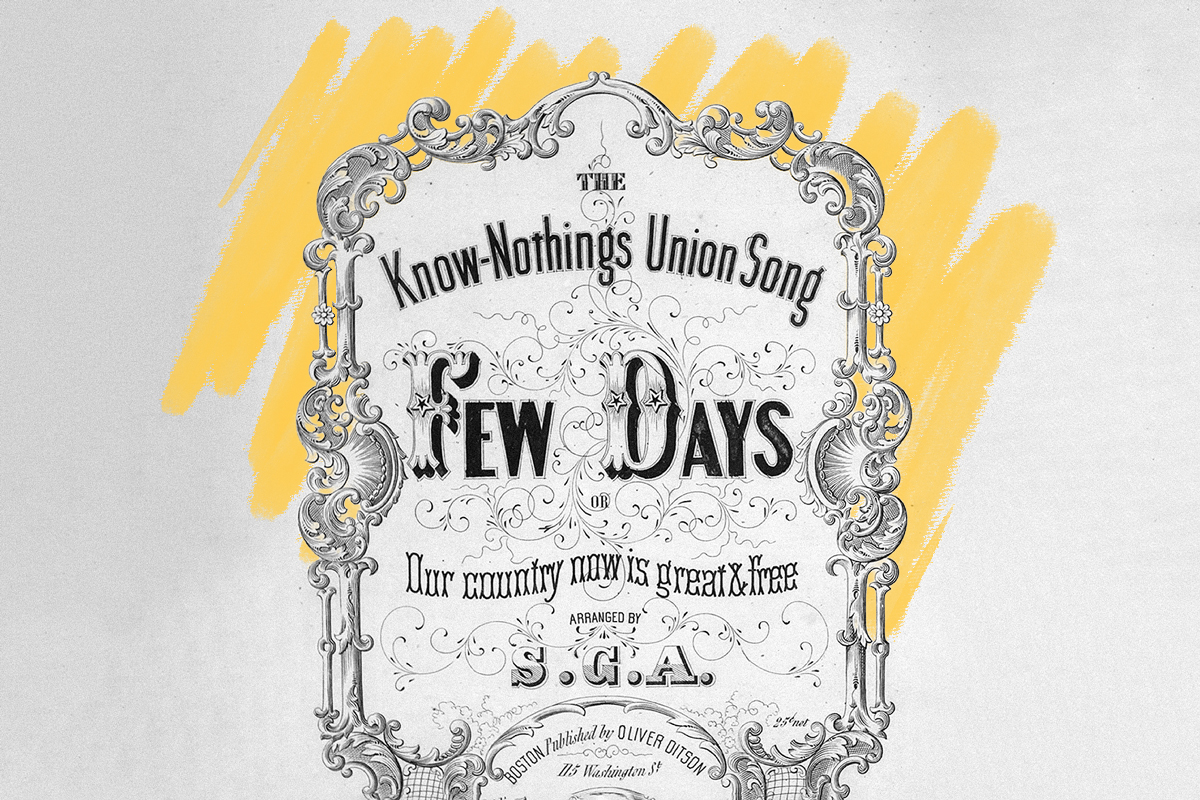The U.S. once had a political party called the “Know-Nothings.”
Of all the political parties that have surfaced over the years, the Know-Nothings would seemingly rank somewhere between the Polish Beer-Lovers’ Party and the Canadian Extreme Wrestling Party as a tongue-in-cheek entity with a silly name. But there was nothing funny about this organization, which tapped into xenophobic fears en route to emerging as a major American political force in the 1850s.
The Know-Nothings sprung from the nativist groups that organized in the United States in response to a rising tide of Catholic immigrants in the early 19th century. Officially working under the banner of the American Party, the Know-Nothings got their nickname from a membership-wide refusal to answer questions about the organization’s secret meetings.
Publicly, the American Party espoused a platform that included a 21-year naturalization period for immigrants, the deportation of foreign-born criminals, the purging of Catholics from public office, and mandatory reading of Protestant versions of the Bible in schools. Coming of age at a time when the Whig Party was splintering over the combustible issue of slavery, the Know-Nothings rapidly gained adherents among those drawn to their populist messaging. The party swelled to an estimated 1 million members by the mid-1850s, with eight governors and as many as 53 members of Congress among its ranks. In 1856, the party even had its own presidential candidate in the form of ex-Oval Office resident Millard Fillmore.
But that (losing) presidential campaign turned out to be the swan song for the Know-Nothings, as the relentless focus on immigration took a back seat among a populace that literally was coming to blows over the issue of slavery. Those in favor of maintaining the practice began drifting toward the Democrats, while many of those opposed found their way to another newly formed party, the Republicans. By 1860, the remaining Know-Nothings had coalesced with former Whigs under the Constitutional Union Party, another political faction doomed to a short life with the Civil War looming.









